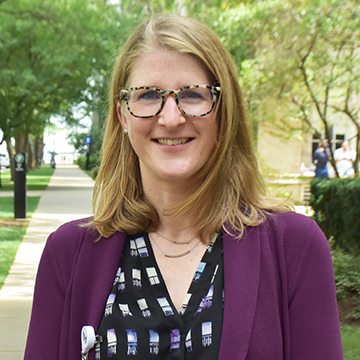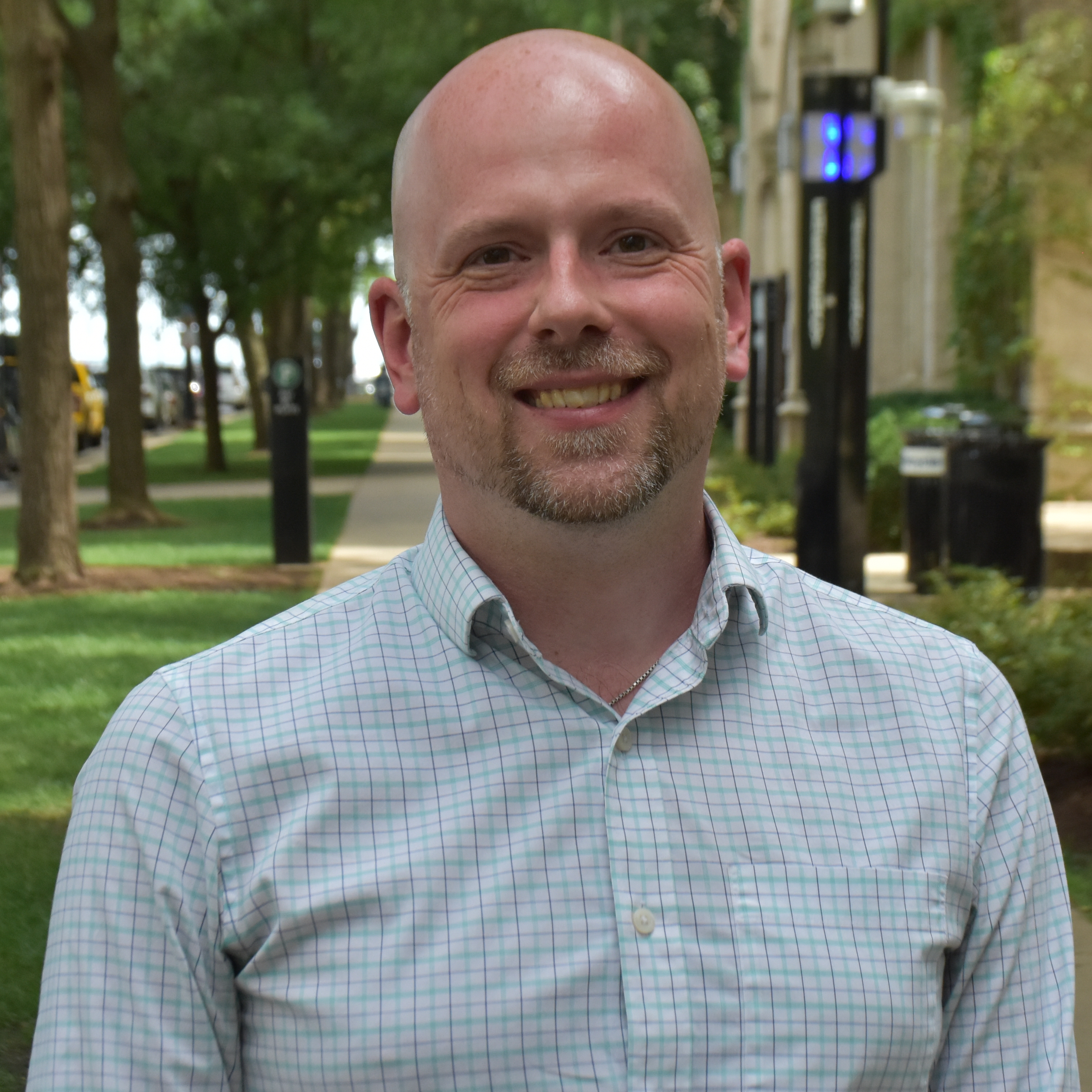KL2 Alumni Achieve Career-Building Funding Successes
When Lisanne Jenkins, PhD, submitted her first R01 grant application, she knew the odds of being funded were against her. She also knew that the research proposed could change the way clinicians predict self-harm in early adolescence.
On average, the National Institutes of Health funds just one in five R01s. Only about the top half are even reviewed at study section.
“I really just wanted my application to qualify for that discussion,” says Jenkins, research assistant professor of Psychiatry and Behavioral Sciences and a NUCATS Institute KL2 Scholar alumna. “I was shocked when I received my score, and it was very exciting to realize I would continue my path as an independent investigator. This was my first R01 application and it’s fairly uncommon for someone to get an R01 on their first try.”

I was shocked when I received my score, and it was very exciting to realize I would continue my path as an independent investigator.”
Jenkins’ R01 seeks to identify brain changes and non-brain changes — environmental elements like family and school-related factors — that predict development of self-harm in early adolescence. Known as non-suicidal self-injury (NSSI), this type of self-harm involves the deliberate destruction of one’s own body tissue without suicidal intent. The overall aim of the study is to look at the brains of youths aged 10 years old who have no NSSI, and then see which features predict who will develop NSSI two or more years later. Jenkins will examine data from the longitudinal Adolescent Brain Cognitive Development (ABCD) study, which is the largest study of its kind in the United States. Prior to her R01 funding, Jenkins received the Ken and Ruth Davee Award for Innovation Investigations in Affective Disorders from the Department of Psychiatry and Behavioral Sciences, which provided pilot funding to support her R01 application.
As Jenkins begins her R01, two other KL2 alumni will embark on renewed investigations of their own. Anna Pfenniger, MD, PhD, assistant professor of Medicine in the Division of Cardiology, and Kyle MacQuarrie, MD, PhD, assistant professor of Pediatrics in the Division of Hematology, Oncology, and Stem Cell Transplantation, were recently awarded a K08 and CURE Early Investigator Award, respectively.
Pfenniger will continue to study the molecular mechanisms that lead to the development of atrial fibrillation, the most common abnormal heart rhythm in the nation. Clinicians and researchers do not yet understand why people develop the disease, nor do they know how best to prevent or treat it.
This has been a very long journey — starting with research internships during medical school, followed by a PhD, clinical training, many moves, and now the establishment of my own scientific laboratory.”

Pfenniger’s Mentored Clinical Scientist Research Career Development Award is seen as an important step toward an independent career as a physician-scientist.
“This has been a very long journey — starting with research internships during medical school, followed by a PhD, clinical training, many moves, and now the establishment of my own scientific laboratory,” she says. “This grant is my ‘other baby.’ It started from a question that I had many years ago (do blood vessel cells do more than just act as a tube for blood transport?) that I could finally explore in the context of my passion — heart rhythm disorder.”
The bulk of the grant submission was written while Pfenniger was pregnant with her daughter. With the submission due just one month before her due date, she’s excited for the new adventures that lie ahead.

The goal over the next few years is to expand my research group and our work so that we're positioned to make strides on rhabdomyosarcoma on multiple fronts.”
MacQuarrie will uses his CURE Award to expand research on rhabdomyosarcoma — a type of soft tissue tumor typically affecting children younger than 10 — into new and exciting directions. He was also recently awarded funding from the Pediatric Cancer Research Foundation to study further explore how the organization within the cells affects tumor resistance to chemotherapy
“The goal over the next few years is to expand my research group and our work so that we're positioned to make strides on rhabdomyosarcoma on multiple fronts,” says MacQuarrie. “To be one of only three awardees in the first year this award was established is so meaningful. From a practical perspective, receiving these types of grants help me do the science I want — and love — to do while also setting me up for success when applying for future awards.”
The NUCATS Institute’s KL2 Program played a pivotal role for each researcher.
“My new award is a direct result of my KL2 work,” says MacQuarrie. “Some of the data I generated — and the chance to analyze that data and think about next steps —during the KL2 was the core of my application.”
The Multidisciplinary Career Development Program (KL2) is a National Center for Advancing Translational Science (NCATS)-sponsored career development award supporting early career faculty at Northwestern. It is designed to train a diverse workforce of investigators to drive future innovation and implement effective clinical and translational research.
“The KL2 helped in so many ways, which I am extremely grateful for,” says Jenkins. “First, it gave me essential training in how the NIH system works via the Navigating the Research Enterprise seminar series. This was useful in gaining an understanding of things like strategies for writing good proposals, what the reviewers look for, and the grant review process. The program also offered many other fantastic opportunities, including the change to enhance my oral communications skills and become a visiting scholar at the University of Pennsylvania.”
Research reported in this publication was supported, in part, by the National Institutes of Health's National Center for Advancing Translational Sciences, Grant Number KL2TR001424. The content is solely the responsibility of the authors and does not necessarily represent the official views of the National Institutes of Health.
Written by Roger Anderson




